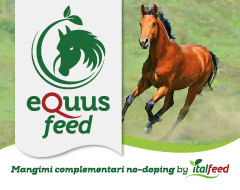2014 Japan Cup (G1) in association with Longines – Preview
The 34th Japan Cup, the richest race of the Japan Racing Association with 250 million yen of the purse going to the winner, fetched 19 nominations, including three from abroad – Trading Leather, Ivanhoweand Up With the Birds – and 13 Grade 1 winners. While past results in the Japan Cup have been near even with the hosts winning 19 times and the visitors 14, Japanese horses have owned the 2,400-meter competition in recent years, having won the last eight races. Alkaased, under Lanfranco Dettori, was the last champion from overseas in 2005 when he set the race record of 2 minutes, 22.1 seconds which still holds today.
Last year, 2011 Melbourne Cup winner Dunaden came in fifth to lead a guest list of three, also featuringSimenon (13th) and Joshua Tree (last in a field of 17). With all due respect to this year’s trio of 4-year-old colts – even last season’s Irish Derby champion and King George VI & Queen Elizabeth Stakes runner-up Trading Leather – being able to match Dunaden’s result ought to be considered a huge effort.
Headlining the Japanese group of runners is none other than Gentildonna, the six-time Grade 1 champion who has won the last two Japan Cups and is angling to win an unprecedented third in a row. Should she three-peat, the 5-year-old mare trained by Sei Ishizaka can tie her legendary sire Deep Impact for the most number of career Grade 1 victories. Gentildonna is coming off a narrow second-place finish in the Tenno Sho (Autumn) this month to start the fall, and has won all three of her past starts in the 2,400 meters at Fuchu. She will also be reunited with jockey Ryan Moore, who guided her to success in the 2013 Japan Cup and the Dubai Sheema Classic in March this year.
“She’s been working at a steady rate since the Tenno Sho, and she’s been lively ever since,” Ishizaka said. “We’re going to push her a week before the race. The good thing for us is that we’ll be racing at Tokyo again. Our goal is to win a third consecutive Japan Cup and I hope we attain a good result here.”
The world’s highest rated racehorse is also throwing his hat into the ring, 5-year-old Just a Way returning on Japanese soil after finishing eighth in the Prix de l’Arc de Triomphe on Oct. 5. He has won twice at the top level in Tokyo – last year’s fall Tenno Sho and the Yasuda Kinen in June – and is hoping to redemonstrate the power that won him the Dubai Duty Free by more than six lengths.
Will the distance of 2,400 meters be a factor for Just a Way in the Japan Cup? Trainer Naosuke Sugai doesn’t believe it will.
“He was in good condition for the Arc and came on really strong where there wasn’t much space at the end,” Sugai said. “It’s clear that to have a chance to win the Arc, you’ve got to be positioned in the front half of the field during the trip. We’re going up against some really tough horses this time, but we won at Tokyo last year in the Tenno Sho in strong fashion. That race was at 2,000 meters but considering how much he won by and the way he performed, we have every reason to believe he can succeed at 2,400 meters, too. We hope he doesn’t embarrass himself out there as the highest rated thoroughbred in the world.”
Harp Star did Japan proud by finishing sixth in the Arc as the nation’s first 3-year-old filly to take a stab at the elusive title at Longchamp. Despite coming on strong late in the race, the result was the worst of the Deep Impact daughter’s career – but it will be hard to imagine her doing worse in the Japan Cup, especially with a favorable weight assignment of 53 kg. Trainer Hiroyoshi Matsuda says Harp Star, out of the Falbrav mare Historic Star, has been in good condition since returning to Japan and could very well become the second 3-year-old filly after Gentildonna to lift the Japan Cup.
“The most important thing is she made it back without any problems,” Matsuda said. “We’ll pick it up from hereon. She’s starting to grow her winter coat but her grandmother, Vega, was the same and that didn’t affect her so she should be fine. She just needs to put in the work, eat well and everything will be OK. There’s no questioning her potential; I’ve got a lot of confidence in her.”
Five-year-old Spielberg finally got his break in the Tenno Sho (Autumn) in a promising career that was sidetracked by injury at one point. The Deep Impactson held off the likes of Gentildonna, this season’s Satsuki Sho (Japanese 2,000 Guineas) champion Isla Bonita and two-time defending spring Tenno Sho holder Fenomeno to capture his first Grade 1 title, which also was his first graded victory. All six of Spielberg‘s wins have come at Tokyo, and trainer Kazuo Fujisawa says the racetrack brings out the best in his horse.
“I thought he made his move to the outside a little too early in the Tenno Sho, but was incredible down the stretch,” Fujisawa said. “He’s gotten physically stronger as he’s gotten older, and the long straight at Tokyo has always suited him. I’m excited about the race, even at this distance.”
A couple of talented 3-year-old colts in Isla Bonita and Tokyo Yushun (Japanese Derby) winner One and Only will take a crack at the big boys, although the two have had contrasting starts to the fall. The Fuji Kiseki-sired Isla Bonita almost became the first 3-year-old to win the Tenno Sho (Autumn) in a dozen years, but was forced to settle for third by Spielberg just before the wire. One and Only, on the other hand, went for the last jewel in the Japanese Triple Crown in the Kikuka Sho (Japanese St. Leger) but finished more than seven lengths out of first in the 3,000-meter race.
Yet both horses are looking forward to running the 2,400 meters at Fuchu again. One and Only and Isla Bonita were one-two in the Japanese Derby, which is held under the same terms as the Japan Cup.
“He let up a little once he stepped out in front on the straight,” Isla Bonita‘s trainer Hironori Kurita said. “It’s reassuring to have a jockey (Masayoshi Ebina) who really understands the horse back in the saddle. This time we’ll be up against the horses who ran in the Arc and some from overseas, so this race will be a true test for him.”
Said One and Only‘s trainer, Kojiro Hashiguchi: “We drew an outside barrier for the Kikuka Sho and were forced to travel pretty much the entire way out wide so that hurt us. I like to believe that result doesn’t reflect the horse’s quality. Tokyo is where he won the Derby. Isla Bonita, who is the same age as our horse, had a heck of a race in the Tenno Sho which gives us a fair indication of what to expect. Our horse should be able to hold his own even against the older horses. As long as he runs to his potential, we’ve got a chance.”
Fenomeno, 5, went missing in action in the fall version of the race he has won two years straight in spring, fading to 14th as the third choice. Trainer Hirofumi Toda is as confused as anyone else about the performance, but insists it was not fitness related. The Japan Cup, longer by 400 meters, should be a better fit for Fenomeno than the 2,000-meter Tenno Sho (Autumn), who has the lungs to win the 3,200-meter Tenno Sho (Spring). An improvement on 14th place appears all but certain, but by how much remains to be seen.
“There was nothing wrong with his condition; the Tenno Sho just didn’t turn out the way we had hoped,” Toda said. “He wasn’t winded at all after the race. It took nothing out of him. He went back to work on the hill the following week, the horse is full of energy. I don’t exactly know why he didn’t race better, but if he even has an average race by his standards, he will bounce back.”
The JRA created the Japan Cup in 1981, driven by the goal to raise the level of Japanese racing to world-class standards. The Japan Cup has always been held in late November over 12 furlongs at the Fuchu track, apart from 2002 when it was run at Nakayama due to renovation work at Tokyo. Along with the Arima Kinen (the Grand Prix), the two Tenno Sho races and the Triple Crown series, the Japan Cup remains one of the highlights on the JRA calendar, having brought to the country many of the biggest names in world racing – both human and equine.
The inaugural Japan Cup was open to only horses from North America and Asia before Europe and Oceania joined the guest list the following year. In 1992, the Japan Cup became the JRA’s first Grade 1 race approved by the International Cataloguing Standards and from 1999 to 2005, it was a part of the Emirates World Racing Championship, then the game’s preeminent global tour.
Tokyo Racecourse boasts the best and largest facilities of the 10 JRA racetracks. The course was originally built in 1933 and since then, has been transformed into a state-of-the-art home to Japan’s most prestigious races including the Japanese Derby, Yasuda Kinen, Yushun Himba (Japanese Oaks) and the Tenno Sho (Autumn).
The oval occupies an area of nearly 200 acres and measures just short of 2,120 meters in circumference. The left-handed track undulates throughout, with a gentle downward slope along the backstretch followed by more ups and downs going into the final bend. The home stretch spanning more than half a kilometer is punishing for the runners, with the course rising two meters over the last 140 meters.
The Japan Cup will be the 11th race on the Sunday card. Post time is at 3:55 p.m.
fonte: Horse Racing in Japan






